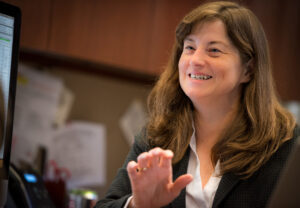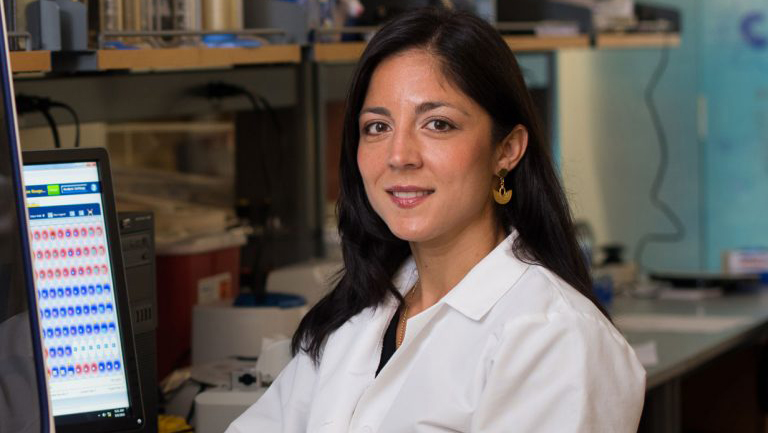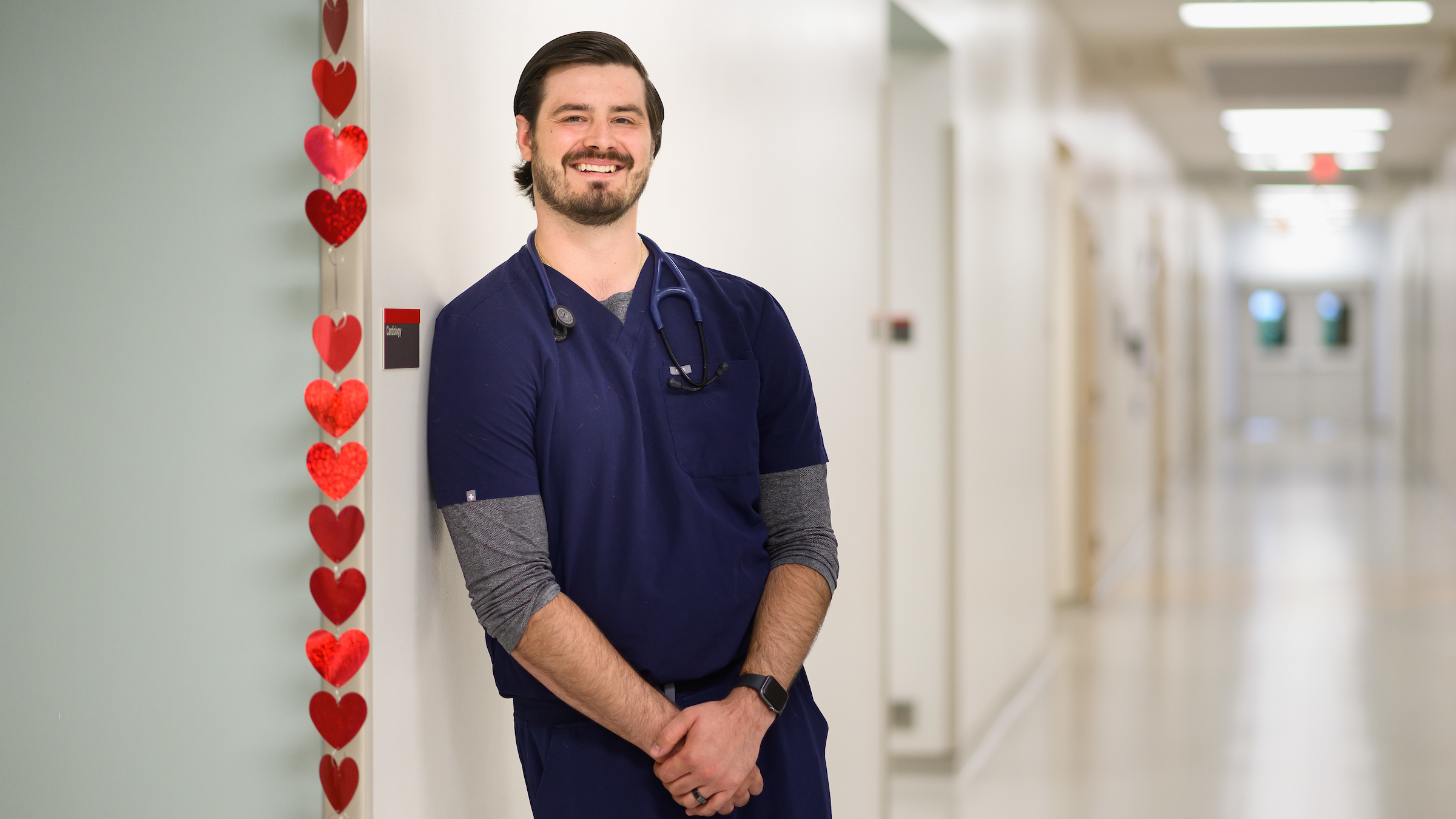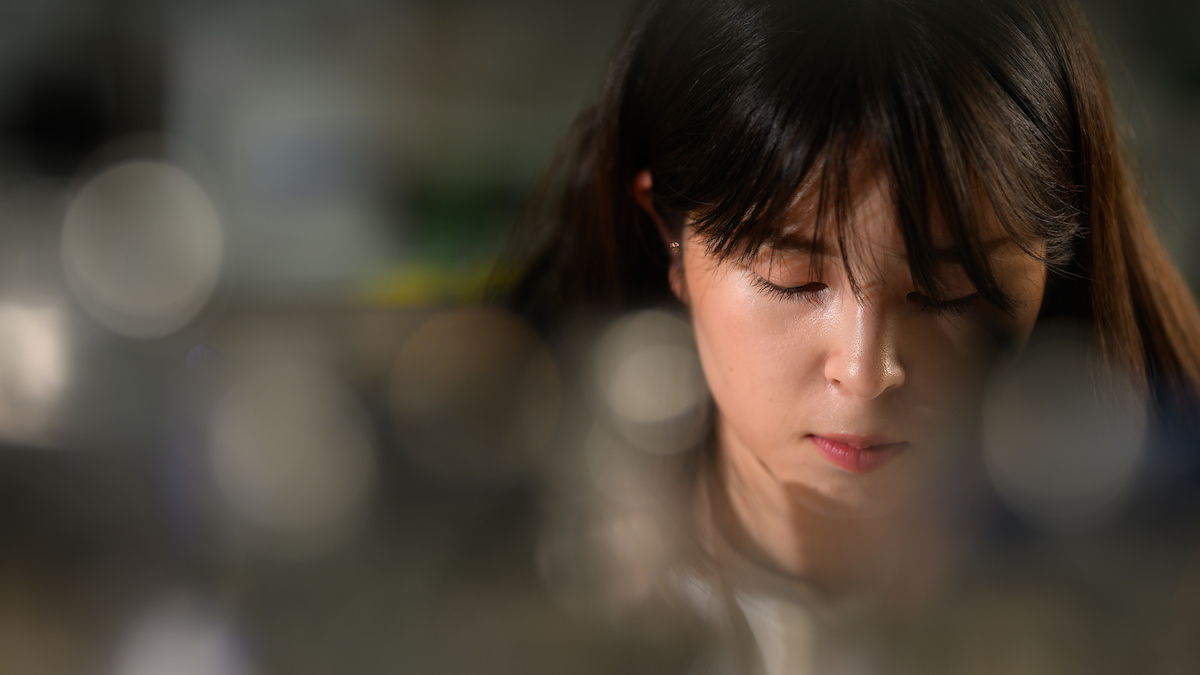Culture of Support at NC State Veterinary Medicine Fuels Research Grant Success

Over in the NC State College of Veterinary Medicine’s research buildings, the world is becoming clearer every day.
Scientists are unlocking mysteries of life — how animal and human cells work, how we can regenerate heart tissue, how cancer invades the body and why. The tiniest discoveries often lead to the biggest medical advances.
But it’s not just in laboratories. At the NC State Veterinary Hospital, a clinician performing surgery is also researching the most effective sutures or new approaches to reducing tumors or how to prevent blindness in horses.
In the hallways of the academic building, a professor is researching new anesthesia procedures and a fourth-year student is also working on a paper focusing on stem cell treatments for orthopedic injuries.
Over the past decade, the CVM has established itself as a formidable research center within an area named for it — the Research Triangle. A steady rise in grants from national and state agencies, veterinary organizations and nonprofits has helped fuel the college’s reputation for innovation.
“Research and discovery is very much part of our culture,” says Kate Meurs, senior associate dean for research and graduate studies, and the Randall B. Terry, Jr. Distinguished Professor of Comparative Medicine. “The research we do today will help us practice veterinary and human medicine better tomorrow.”

In 2013, a year after Paul Lunn was named CVM dean, 167 grants awarded to the college totaled $8.8 million dollars. In 2020, the CVM received 235 grants totaling $20 million. The average amount given to individual projects over the past seven years has increased by $30,000.
Animal health foundations and agricultural industry partners steadily fund an array of college projects, everything from understanding feline pain to refining swine and poultry farm protocols.
Funding from high-profile federal organizations, including the National Institutes of Health and the Centers for Disease Control, has sharply risen. In 2013, federal grants totaled $3.7 million. This year, it’s $14 million.
An ever-widening breadth of research topics has helped — from the antimicrobial resistance work of the robust CVM global health program to the animal welfare and infectious disease studies of the Department of Population Health and Pathobiology.
Collaborative, translational projects, those benefiting both animals and humans, with other universities and local institutions have made the CVM’s research even more desirable to those funding them.
Many CVM researchers and clinicians are members of NC State’s Comparative Medicine Institute, which supports interdisciplinary research projects and is co-directed by Jorge Piedrahita, the CVM’s Randall B. Terry, Jr. Distinguished Professor of Translational Medicine.
But while the science must be good, the internal support must be great.
Prioritizing mentorship partnerships between seasoned researchers and new scientific minds, as well as hiring more research grant support staff, has yielded not just more grants and more dollars, but increased efficiency.
In 2013, 167 grants awarded to the CVM totaled $8.8 million dollars. In 2020, the college received 235 grants totaling $20 million.
“We have all worked to make it easier for faculty, staff and trainees to do the research that they are most passionate about. We want to determine what they need to succeed,” says Meurs. “Sometimes that may be providing access to special equipment, research space or new technology.
“But sometimes it is access to a more experienced researcher who can provide mentorship.”
CVM researchers are innovative and self-motivated, but even the smartest minds need help when applying for highly competitive grants. Meurs did. She received vital research mentoring while completing a small animal internship at the NC State Veterinary Hospital 30 years ago.
Anthony Blikslager was a resident at the CVM in 1990 when Meurs was an intern. Now the head of the CVM’s Department of Clinical Sciences, Blikslager’s influential work in equine surgery and gastroenterology has been bolstered by decades of grants.
Blikslager says the staff of the CVM’s Laboratory Animal Resources and Central Procedures Laboratory has been particularly vital in developing new, large animal models that lead to more effective medical treatments for animals and humans.
That work has helped the college to build collaborative relationships with faculty from Duke University, North Carolina Central University and the University of North Carolina at Chapel Hill that has led to strong federal funding.
“The CVM has created the most robust support of translational and comparative biomedical scientists amongst all veterinary colleges in the United States,” says Blikslager. “Our incredible set of resources enable investigators, especially talented young scientists, to develop, create and fund extraordinary large-scale projects.”
As a graduate student in the CVM’s comparative biomedical sciences program, Liara Gonzalez received invaluable support and research training from Blikslager, her Ph.D. adviser and Sam Jones, a professor of equine medicine who directs the CBS program.

Five years later, she’s an assistant professor of gastroenterology and equine surgery at the CVM. From the moment she joined the faculty, Gonzalez said, Lunn made it clear that she would be able to prioritize her research. She was given resources and time to build her productive research laboratory, as well as flexibility in her schedule to conduct the research required for her grants.
“Dr. Meurs has organized small groups of researchers at similar stages of our careers who provide a safe place to discuss obstacles, celebrate successes and review grants,” says Gonzalez. “Dr. Meurs goes out of her way to recognize our successes.
“Sometimes it is easy to focus on the struggles that come with research, but she has been amazing in calling attention to all of the successes and wins.”
She still receives vital guidance for the research done in the Intestinal Regenerative Medicine laboratory she leads, as well as help earning large grants, including one last year from the U.S. Department of Defense to strengthen the viability of intestinal transplants.
Kenneth Adler, professor of cell biology, is working with Gonzalez right now to submit a multi-year research project grant, or R01, from the National Institutes of Health. Gonzalez is now supporting others interested in research. Every summer, her laboratory benefits from the CVM’s summer research program for first- and second-year veterinary students and the students benefit from Gonzalez’s guidance.
“I feel like I have unwavering support,” says Gonzalez. “Dr. Meurs, Dean Lunn and [former head of the Department of Clinical Sciences] Dr. Lizette Hardie created an environment where I felt like I could approach them with any concerns or perceived obstacles. They were always actively engaged with me to create solutions and support me.”
~Jordan Bartel/NC State Veterinary Medicine


